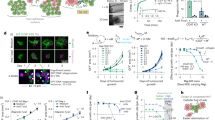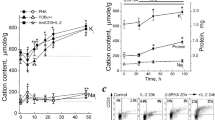Abstract
We have studied the clonogenic capacity of tumour cells in agar from 38 malignant effusions from 31 patients with epithelial tumours. Colony formation of unfractionated cells, varies considerably from patient to patient, and is positively correlated with the percentage of tumour cells in the sample. Clonogenicity was shown to be reduced in 8/9 cases by removal of plastic-adherent and iron-phagocytic cells. In the ninth case, increased clonogenicity occurred after this procedure. When the autologous adherent cells were removed from the effusion and used in reconstitution experiments as an underlayer in a two-layer agar system, they were able to reverse the effect of the initial fractionation in a dose-dependent fashion. This indicates cellular communication based on release of a diffusible product of plastic-adherent cells. Morphological, phagocytic and prostaglandin-synthetic analysis of the fractions involved in the reconstitution experiments implicate the macrophage as the operative cell in this interaction. However, an accessory role for lymphoid cells or tumour cells themselves cannot be excluded.
This is a preview of subscription content, access via your institution
Access options
Subscribe to this journal
Receive 24 print issues and online access
$259.00 per year
only $10.79 per issue
Buy this article
- Purchase on Springer Link
- Instant access to full article PDF
Prices may be subject to local taxes which are calculated during checkout
Similar content being viewed by others
Rights and permissions
About this article
Cite this article
Buick, R., Fry, S. & Salmon, S. Effect of host-cell interactions on clonogenic carcinoma cells in human malignant effusions. Br J Cancer 41, 695–704 (1980). https://doi.org/10.1038/bjc.1980.131
Issue Date:
DOI: https://doi.org/10.1038/bjc.1980.131
This article is cited by
-
Enhanced chemosensitivity of cells from malignant effusions under condition of exposure to high temperature
The Japanese Journal of Surgery (1986)
-
Enhancement of rat ACT-1 tumor clonogenicity by xenogeneic mouse macrophages
In Vitro (1984)



